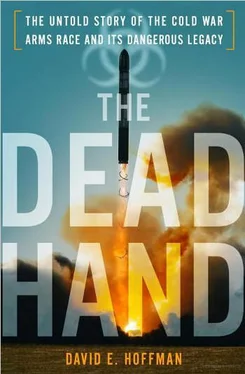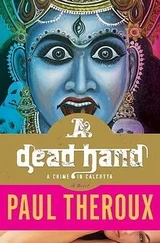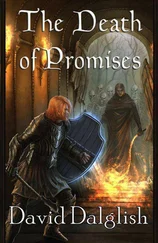23 Gordievsky describes the escape in Next Stop . David Wise, in Nightmover: How Aldrich Ames Sold the CIA to the KGB for $4.6 Million (New York: HarperCollins, 1995), offers a different story of the escape, quoting CIA officials as saying that Gordievsky was secreted inside a specially built Land Rover and driven right out of the British embassy in Moscow all the way to Finland. Gordievsky claims this was a story the KGB leaked to the Western press.
24 Wise, p. 135, raises the possibility that Yurchenko did not know about Ames.
25 Hired by the CIA in 1981, at age twenty-eight, Howard went through training to be a clandestine agent in the Soviet Union and knew much top-secret information. But in the months before his scheduled departure for Moscow, Howard failed a series of CIA polygraph examinations and was fired from the CIA in May 1983. Bitter and furious, he walked out of headquarters with all the agency’s Soviet secrets. In late 1984 and early 1985, apparently out of revenge, Howard began selling his knowledge to the KGB at the meetings in Vienna. He may have told them about a British double agent. He is believed to have told them about other spies, and some of the CIA’s most sophisticated technical means for spying.
26 On Casey, see Gates, p. 363. Howard slipped the FBI and fled the country. See David Wise, The Spy Who Got Away (New York: Random House, 1988), chs. 24–26.
27 Within a KGB residency, Line X referred to scientific and technical intelligence and Line PR to political, economic and military strategic intelligence and active measures. See Appendix E, “The Organization of a KGB Residency,” in Christopher Andrew and Vasili Mitrokhin, The Mitrokhin Archive: The KGB in Europe and the West (London: Allan Lane/The Penguin Press, 1999), p. 743.
28 “Affidavit in support of criminal complaint, arrest warrant, and search warrants,” United States of America vs. Robert Philip Hanssen , United States District Court for the Eastern District of Virginia, pp. 20–21. Martynov, a KGB Line X officer assigned to the Soviet embassy in Washington from October 1980 to November 1985 was compromised by Ames and later executed. Sergei Motorin, a KGB line PR officer assigned to the embassy in Washington from June 1980 to January 1985, was also compromised by Ames and executed. Boris Yuzhin was a KGB Line PR officer working undercover as a TASS correspondent in San Francisco. He was compromised by both Ames and Hanssen. In December 1986, he was arrested, and later sentenced to fifteen years in prison. In 1992 he was released under a general amnesty grant and subsequently emigrated to the United States.
29 The woman lived in Montreal, married to a Soviet diplomat. The CIA took Yurchenko there, but she rejected him when he knocked on her door. Bearden recalled she abruptly told Yurchenko she had loved a KGB colonel, not a traitor, and shut the door in his face.
CHAPTER 10: OF SWORDS AND SHIELDS
1 Vladimir Medvedev, Chelovek za Spinoi (Moscow: RUSSLIT, 1994), p. 208.
2 An invaluable window on these early developments is the Chernyaev diary. Chernyaev worked in 1985 as deputy director in the Central Committee’s International Department, and became an assistant to Gorbachev in 1986. Some of the diary entries, edited, appear in the English edition of Chernyaev’s memoir, My Six Years with Gorbachev . English translations of the diary for 1985–1988 have been published by TNSA. Date citations are from the full diary, and page numbers refer to the book. The author is grateful to Svetlana Savranskaya for assistance with the Chernyaev diary.
3 The trip to Leningrad began May 15 and the Smolny speech was two days later. Serge Schmemann, “First 100 Days of Gorbachev: A New Start,” New York Times , June 17, 1985, p. 1.
4 Mikhail Gorbachev, Memoirs (Moscow: Novosti, 1995), p. 201.
5 Chernyaev, p. 33, and diary May 22, 1985.
6 Chernyaev, p. 29, and diary April 11, 1985.
7 The campaign was inspired by Andropov’s similar but ill-fated attempts to impose more discipline on society. Gorbachev’s early economic reforms were relatively meek and ill-fated attempts at “acceleration” of the existing system, compared to the more radical approaches he would attempt later.
8 Chernyaev diary, July 6, 1985.
9 Sergei Akhromeyev and Georgi M. Kornienko, Glazami Marshala i Diplomata [In the Eyes of a Marshal and a Diplomat] (Moscow: International Relations, 1992), in Russian, p. 64.
10 Clifford Gaddy, The Price of the Past (Washington, D.C.: Brookings Institution, 1996), p. 49.
11 Akhromeyev, pp. 34–35. See Thomas M. Nichols, The Sacred Cause (Ithaca: Cornell University Press, 1993), p. 134.
12 Gorbachev, pp. 203–205.
13 Gorbachev, Zhizn i Reformi , vol. 1, p. 207 (Moscow: Novosti, 1995). His use of Moloch is a literary allusion to a symbol of cruel and unusual force demanding human sacrifice.
14 Ksenia Kostrova, interview, August 2007. Ksenia is Katayev’s granddaughter.
15 This account is based on Katayev, Hoover, and materials in author’s possession.
16 A CIA estimate, made in 1986, was 15–17 percent. (This estimate was a revision from 13–14 percent earlier. The reason for the revision was a recalculation of prices made by the Soviets in 1982.)
17 Katayev, “Chto Takoe VPK” [What Was the VPK], undated, author’s possession. This paper is similar to a chapter Katayev contributed to The Anatomy of Russia Defense Conversion , edited by Vlad E. Genin (Walnut Creek, Calif.: Vega Press, 2001), p. 52.
18 Andrei Grachev, Gorbachev (Moscow: Vagrius, 2001), p. 178. Gorbachev nursed a hope to use the defense sector to somehow boost the flagging Soviet economy. Gaddy, pp. 55–56.
19 Robert D. English, Russia and the Idea of the West: Gorbachev, Intellectuals and the End of the Cold War (New York: Columbia University Press, 2000), pp. 193–228.
20 See Stephen F. Cohen and Katrina vanden Heuvel, Voices of Glasnost: Interviews with Gorbachev’s Reformers (New York: W. W. Norton & Co., 1989), pp. 157–173.
21 Letter to Politburo of November 26, 1985, “On distortion of facts in reports and information coming to the CPSU Central Committee,” State Archive of the Russian Federation, Fond 3, Opis 111, Delo 144, pp. 39–41, courtesy Svetlana Savranskaya.
22 Georgi Shakhnazarov, Tsena Svobody: Reformatsiya Gorbacheva Glazami yevo Pomoshnika (Moscow: Rossika-Zevs, 1993), p. 88.
23 Steve Coll, Ghost Wars (New York: Penguin Books, 2004), p. 127.
24 Chernyaev diary, June 20, 1985.
25 Matlock recalls the Soviets already had in place 414 Pioneers, each with three warheads, while NATO at that point had deployed only 143 warheads on intermediate-range missiles in Europe, made up of 63 Pershing IIs and 80 ground-launched cruise missiles. Matlock, Reagan and Gorbachev , p. 116.
26 Reagan letter to Gorbachev, April 30, 1985, RRPL.
27 Chernyaev diary, April 16, 1985.
28 A contentious issue this year was whether Reagan’s proposed Strategic Defense Initiative would remain within a narrow interpretation of the 1972 treaty on missile defense, or whether the administration was seeking to use a broader interpretation of the treaty to allow research to move ahead. McFarlane suggested October 6 the treaty permitted research, testing and development of new systems—appearing to put the administration on record for using a broader interpretation of the treaty. The Soviets were alarmed at this, as were U.S. allies. George Shultz, Turmoil and Triumph: My Years as Secretary of State (New York: Charles Scribner’s Sons, 1993), pp. 579–582. An account critical of Shultz appears in Frances Fitzgerald, Way Out There in the Blue (New York: Simon & Schuster, 2000), pp. 290–300.
Читать дальше












